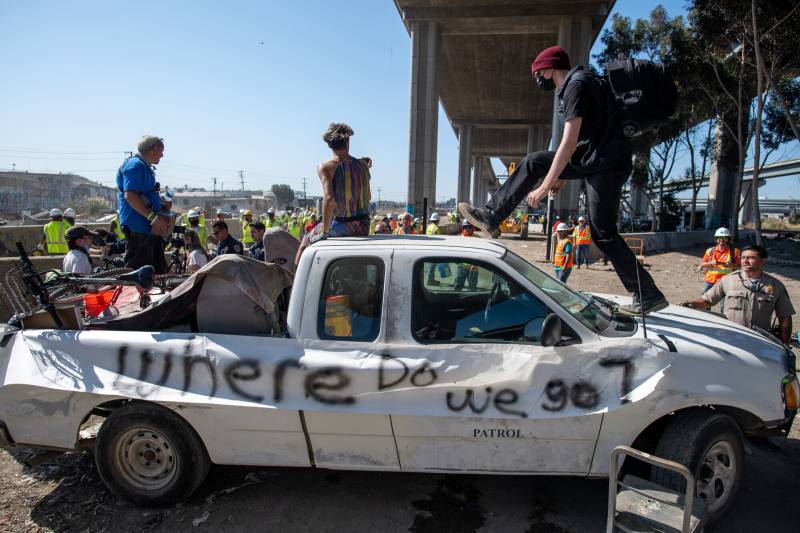The city of Oakland on Tuesday began to sweep a small community of unhoused people who call a tiny beach near the Bay Bridge home, according to an attorney representing the residents in a federal lawsuit.
Most of the 12 residents of the Interstate 80 toll plaza camp, many of whom have disabilities, plan to stick together as they move on to another roadside about three miles away.
“A lot of them are very sad,” said Andrea Henson, an attorney for the encampment residents who visited Tuesday morning as homeless advocates arrived with UHauls and police stood by to oversee the city sweep. “They’re scared, of course. They’re concerned about their safety, especially the women who have children. They were very happy that the community decided to stay together because they do provide protection and assistance to one another that, had they been isolated, they wouldn’t have.”

